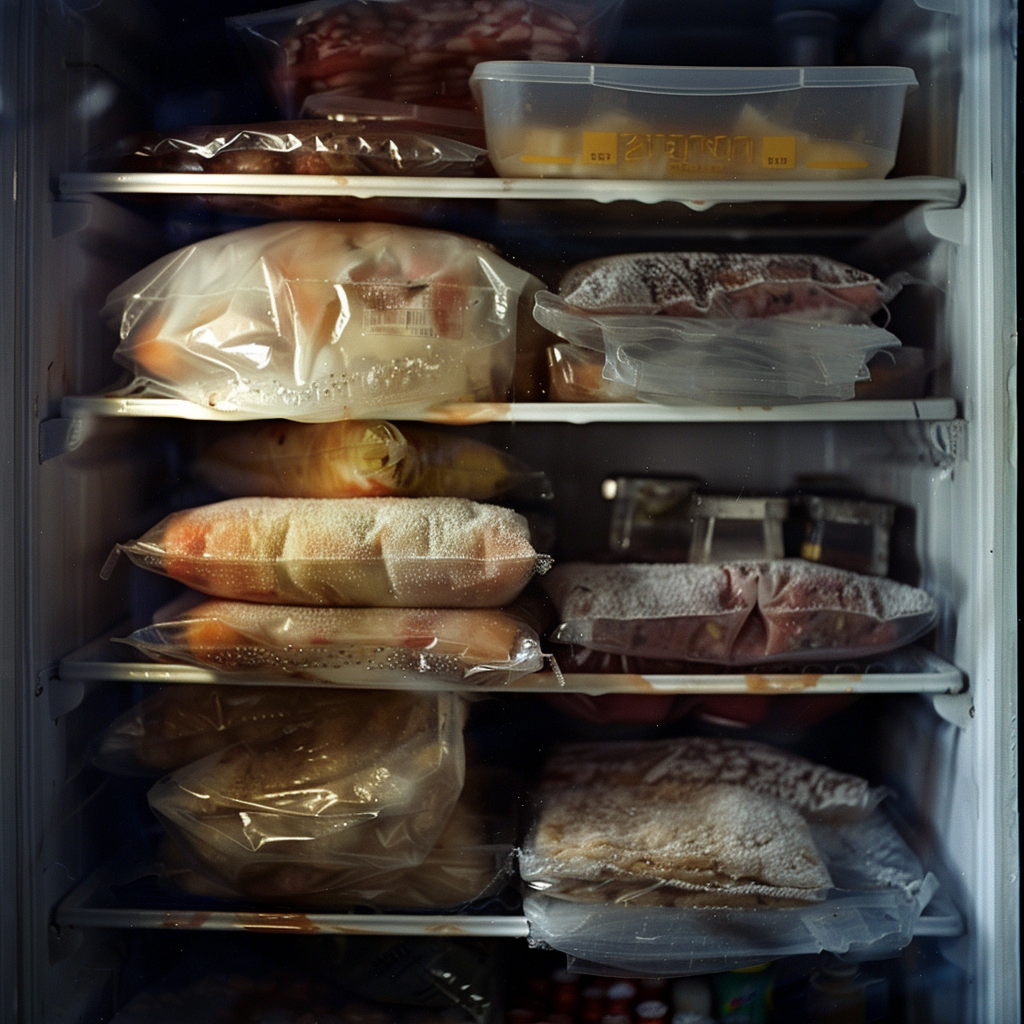
In today’s fast-paced world, the freezer stands as a cornerstone of modern food preservation. It enables us to extend the lifespan of perishable items, minimizing waste and maximizing convenience. However, not all foods fare well in the freezer, and knowing the optimal storage durations is essential to maintaining their quality. In this comprehensive guide, we’ll explore how long various food items can be safely stored in the freezer, ensuring both freshness and flavor.
Meat and Poultry:
Meat and poultry are prime candidates for freezing due to their susceptibility to spoilage. When properly stored, they can maintain their quality for an extended period. Here’s a breakdown of recommended freezer storage times for various types of meat:
– Beef, veal, lamb: 6-12 months
– Pork: 4-6 months
– Poultry (chicken, turkey): 9-12 months
– Ground meat (beef, turkey, chicken): 3-4 months
– Processed meats (sausages, bacon): 1-2 months
To maintain freshness, it’s crucial to wrap meat tightly in freezer-safe packaging to prevent freezer burn and minimize exposure to air.
Seafood:
Seafood, like meat, is highly perishable and requires careful handling to maintain its quality in the freezer. Here’s a guideline for freezing various types of seafood:
– Fish (lean varieties): 6-8 months
– Fatty fish (salmon, mackerel): 2-3 months
– Shellfish (shrimp, scallops): 3-6 months
To preserve the delicate texture and flavor of seafood, wrap it tightly in plastic wrap or aluminum foil before placing it in a freezer bag or container.
Fruits and Vegetables:
Freezing fruits and vegetables at the peak of freshness locks in nutrients and flavor, providing a convenient source of produce year-round. Here are recommended freezer storage times for common fruits and vegetables:
– Berries: 8-12 months
– Citrus fruits (oranges, lemons): 3-4 months
– Apples, pears: 6-8 months
– Stone fruits (peaches, plums): 6-9 months
– Leafy greens (spinach, kale): 8-12 months
– Root vegetables (carrots, potatoes): 10-12 months
For optimal results, blanch vegetables before freezing to preserve color and texture, while fruits can be frozen either whole or sliced.
Dairy and Eggs:
While dairy and eggs can be frozen, they may undergo texture changes upon thawing. Here are recommended freezer storage times:
– Cheese: 4-6 months (hard cheese), 2-3 months (soft cheese)
– Butter: 6-9 months
– Milk: 1-3 months (note: milk may separate upon thawing)
– Eggs (out of shell): 1 year (beat lightly before freezing)
To minimize texture changes, freeze dairy products in airtight containers or freezer bags.
Baked Goods and Prepared Meals:
Baked goods and prepared meals can be frozen for convenient meal prep. Here’s a guideline for freezer storage times:
– Breads, muffins: 2-3 months
– Cookies, pastries: 3-6 months
– Casseroles, soups, stews: 2-3 months
Wrap baked goods tightly in plastic wrap or aluminum foil, and store prepared meals in freezer-safe containers.
Properly utilizing the freezer can significantly extend the shelf life of various foods, allowing for better meal planning and reducing food waste. By following these guidelines for freezer storage times, you can ensure that your frozen foods maintain their quality and flavor for months to come. Remember to label items with the date of freezing for easy reference, and always practice proper thawing techniques to preserve the integrity of your frozen foods.





